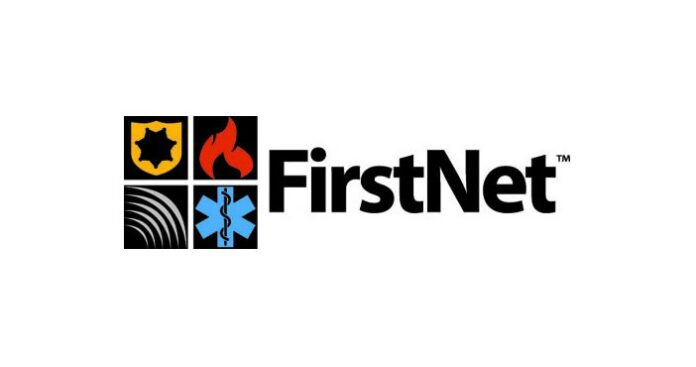I love it when a plan comes together
Some of us are old enough to remember the actual origins of that phrase, now an ever-popular Internet meme. In one of the most famous lines from the mid-1980’s television show, “The A-Team”, starring “Dancing with the Stars” icon “Mr. T”, A-Team leader Colonel John ‘Hannibal’ Smith, (George Peppard) declares, “I love it when a plan comes together,” kind of like the folks at AT&T Wireless are probably thinking these days. Why? Because FirstNet, the independent authority Congress created to develop, build and operate a nationwide broadband network for first responders, just awarded the contract for doing so to AT&T. It’s the culmination of a plan hatched in 2010 to make sure that a block of very valuable commercial spectrum stayed out of the hands of AT&T’s smaller wireless competitors.
Back then, the 700 MHz band, newly available for auction when broadcasters relocated as part of the Digital Television Transition, was the prized, most sought-after “beachfront” spectrum for improving wireless network coverage. And the “belle of the ball” was a slice called the D Block, the best 700 MHz spectrum still available after the government auctioned off the rest. No bidder met the Federal Communications Commission’s initial D Block auction requirement, however, because it came with an uncapped obligation to build a public safety network in the D Block and adjacent 700 MHz public safety channels. So when the D Block auction failed, interested parties urged the FCC to drop the public safety obligation and re-auction the D Block as regular commercial spectrum. Carriers with little or no “beachfront” spectrum, such as T-Mobile US and Sprint, liked the idea, as did the big 700 MHz auction winners, Verizon and AT&T.
But the FCC then made a surprising decision that complicated matters. It approved the unrelated transfer of a mobile satellite license, controlled by SkyTerra Communications, Inc. (subsequently LightSquared and now Ligado), to a private hedge fund, Harbinger Capital Partners Funds. The FCC’s approval included, however, a “voluntary condition” providing that SkyTerra not allow its planned “wholesale” terrestrial mobile network to be used, directly or indirectly, by either of the two largest wireless providers — meaning Verizon and AT&T — without prior FCC approval. Stated differently, the FCC concluded that restricting the wireless market’s biggest players from buying or leasing capacity on SkyTerra’s new wholesale network would inject much-needed competition into the wireless marketplace. Verizon and AT&T demanded immediate reconsideration, of course, but the FCC simply sat on their petitions. (Full disclosure, I filed oppositions to their petitions on behalf of Sprint.)
With the SkyTerra conditions remaining in place, AT&T and Verizon began to fear that the FCC might similarly restrict or block their participation in a D Block re-auction, effectively earmarking the “beachfront” D Block for their competitors. So, Verizon and AT&T started a counter-offensive. Taking a page from a previous 800 MHz spectrum battle, they joined forces with the public safety community and pushed Congress to pass a bill reallocating the D Block from commercial to public safety use. They argued that combining the D Block with public safety’s existing 700 MHz spectrum would better support an interoperable, nationwide wireless broadband network, an unfulfilled recommendation of the President’s September 11 Commission. Not surprisingly, the proposal gained strong support from public safety and other stakeholders and Congress enacted it. (See Section 6101 of the Middle Class Tax Relief and Job Creation Act of 2012).
Verizon and AT&T’s counter-strategy was pure genius; if the market’s two largest carriers couldn’t have this valuable spectrum, neither could their competitors. And “giving” the D Block to public safety was the perfect public interest cover for undercutting the FCC’s nascent inclination to limit a re-auction to AT&T and Verizon’s competitors.
Subscribe now to get the daily newsletter from RCR Wireless News
Now don’t get me wrong. AT&T is a safe choice to be FirstNet’s network partner with its existing LTE network and its ability to invest about $40 billion in the public safety network over its 25-year contract — essential funding as First Net’s $6.5 billion is far short of the amount that will be needed to construct, operate and maintain a nationwide, 4G, “public safety grade” mobile data network. AT&T deserves credit for consistently “walking the walk” in supporting public safety and deploying its considerable Congressional and federal lobbying resources for D Block reallocation to public safety. Moreover, it’s way past time to get this network built and serving our nation’s first responders.
But, to paraphrase the A-Team’s Hannibal Smith, you’ve got to love it when a plan comes together! AT&T helped keep valuable spectrum out of its competitors’ hands, won public safety’s business for the next 25 years, and gets to incorporate the public safety network’s excess capacity in its commercial network, plus a cool $6.5 billion in funding.
Now that’s what I call the A-Team!
These are the personal views of the author and not those of Perkins Coie.

